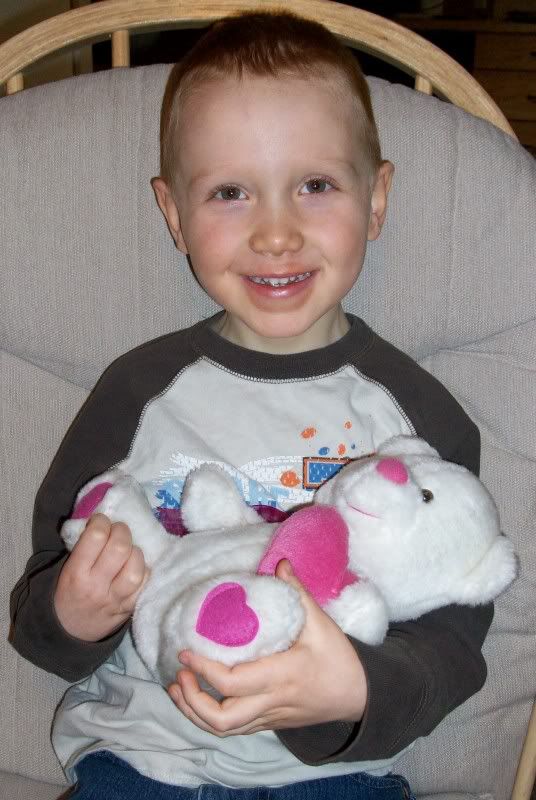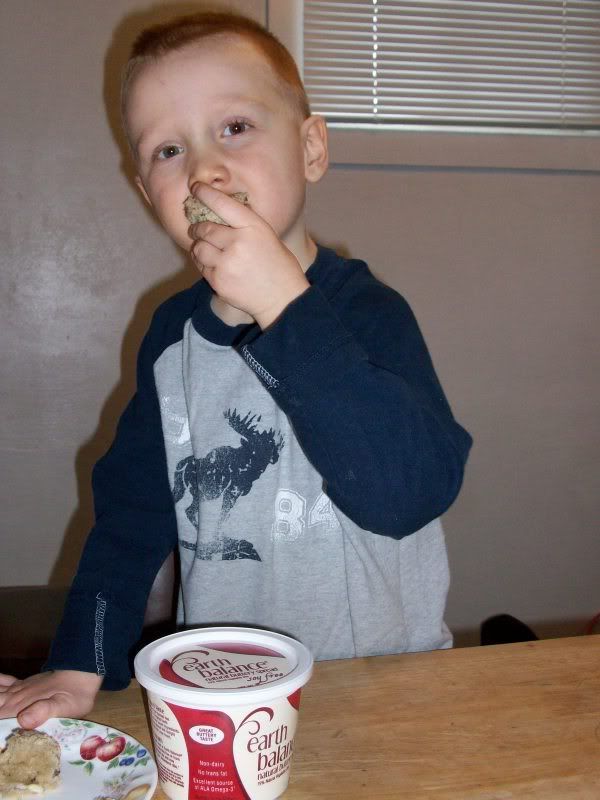Dear Dr. Mikle South,
Hello, my name is Celeste. I am BYU alumni and a Giant Steps parent. I attended the presentation that you and your students put on for the parents of the Giant Steps Preschool several months back. I was impressed with the work your students presented. You mentioned that as part of your research you meet with many parents and note their concerns. I have felt since that time a need and a desire to express to you some things about my journey with autism.
I have lived with autism in my family since 1993, when my brother with autism was born. Now I am the parent of a Giant Steps student. For most of those 17 years when my brother was growing up, I believed that autism is a neurological disorder only and that education is really the only thing that could help a person with autism. After my little son was diagnosed I studied a book called Changing the Course of Autism by Dr. Bryan Jepson. Dr. South, this book was revelation to my mind. I explained the behaviors and phases of my brother over all those years, and also the ones that were emerging in my son. Now I believe that autism is a disease of the body greatly affects the brain. Meaning, persons with a genetic tendency slip into autism when their bodies cannot cope with all of the toxins that enter it.
Since the summer of 2008 my son has been seeing Dr. David Voss at the Freedom Medical Center who treats his condition medically. My son eats gluten free, casein free, and usually sugar free. He is on a variety of dietary supplements that are closely monitored by his doctor. The results over time have been eye contact, communication, and awareness. Giant Steps has of course accelerated his progress even more. This biochemical intervention program is difficult to do, but it is much easier than having a child who is more severely autistic. When I am in a group of Giant Steps parents and they talk about their children’s different troubling behaviors, (such as screaming, running away, and making family life difficult in other ways,) I usually find myself thinking, “I grew up with that, and my son used to be just like that, but not nearly so much now.”
Unfortunately the compilation of research that Dr. Bryan Jepson presents in his book is a bit sparse. There are many gaps and many topics that need more looking at. There is no research whatsoever touching this program from psychology professionals as far as I am aware.
And so Dr. South, it is my plea that If you have any students that are at all interested in pursuing this area in their graduate studies, please encourage them. More substantial research in this area from a department such as yours would do a world of good, not only for children with autism in Utah , but for people with autism everywhere.
Thank you very much for your work in support of Giant Steps. I am very appreciative of what you and your students do.
Celeste Jean
This is the email I sent to Dr. South today. I know it is a bit presumptuous. However, here in Utah we have one of the highest rates of autism in the entire country, and I feel that this professor and his team of graduates have a great deal of influence. Already they do research that justifies to the minds of lawmakers the funding of the Giant Steps Preschool.
Yes, I am hopeful enough to think my small efforts could make a difference in his student's studies. At the least I know I will receive a short, kind reply. I have met Dr. South. He is a nice, fun loving guy. (This is the man who held a free drawing for candy bars at the above-mentioned presentation meeting. LOL!)
Living, loving, learning, and growing with my family, GF/CF, and biochemical intervention.
Friday, February 19, 2010
Sunday, February 14, 2010
Happy Valentine's Day!

This is a very recent picture I took of Eli with his beloved teddy dubbed "Pink Heart Bear." Eli picked him out at a Macey's grocery store last February. I was surprised that he picked out the one with the most pink on it. He has never been huge into stuffies, but he still loves this bear a year later after all the different ages and phases he has been through.
It all seems so ironic considering his most recent 'like' is Spiderman. :)
Wednesday, February 10, 2010
Earth Balance Spread and Veganism
For awhile we were using ghee as part of our son's gluten free/casein free diet. Now we have found what we feel is an even better alternative. It is Earth Balance Natural Buttery Spread. The cheapest place to pick this up in Utah County is Sunflower Farmer's Market. As compared to ghee, you get much more for your money.
*non-hydrogenated
*gluten/casein free
*varieties include a soy-free option
*completely vegan

I admit, the vegan aspect of this product is a big draw for me. According to The McDougall Plan, by John A. McDougall, M.D. and Mary A. McDougall, the higher you are on the food pyramid, the higher the amount of fat-soluable contaminants your food will contain. For example, the grains on the bottom of the pyramid will have the lowest amount of contaminants, while the breast feeding child on the top of the pyramid will have potentially the highest.
Concentrated contaminants can be avoided to a large degree by eating vegan. Another more current book on this subject that is very popular is called The China Study. I personally haven't read this one yet, but I plan to in the near future.
My family and I do not eat vegan, but since learning more about the health hazards and also the markets promoting meat and dairy products, meat has become much more sparse in our home. It is used once in a while for a flavoring, not as a main course. As for dairy, Eli does not eat dairy, and products like Earth Balance make limiting dairy so much easier for the rest of the family.
*non-hydrogenated
*gluten/casein free
*varieties include a soy-free option
*completely vegan

I admit, the vegan aspect of this product is a big draw for me. According to The McDougall Plan, by John A. McDougall, M.D. and Mary A. McDougall, the higher you are on the food pyramid, the higher the amount of fat-soluable contaminants your food will contain. For example, the grains on the bottom of the pyramid will have the lowest amount of contaminants, while the breast feeding child on the top of the pyramid will have potentially the highest.
Concentrated contaminants can be avoided to a large degree by eating vegan. Another more current book on this subject that is very popular is called The China Study. I personally haven't read this one yet, but I plan to in the near future.
My family and I do not eat vegan, but since learning more about the health hazards and also the markets promoting meat and dairy products, meat has become much more sparse in our home. It is used once in a while for a flavoring, not as a main course. As for dairy, Eli does not eat dairy, and products like Earth Balance make limiting dairy so much easier for the rest of the family.
Subscribe to:
Posts (Atom)